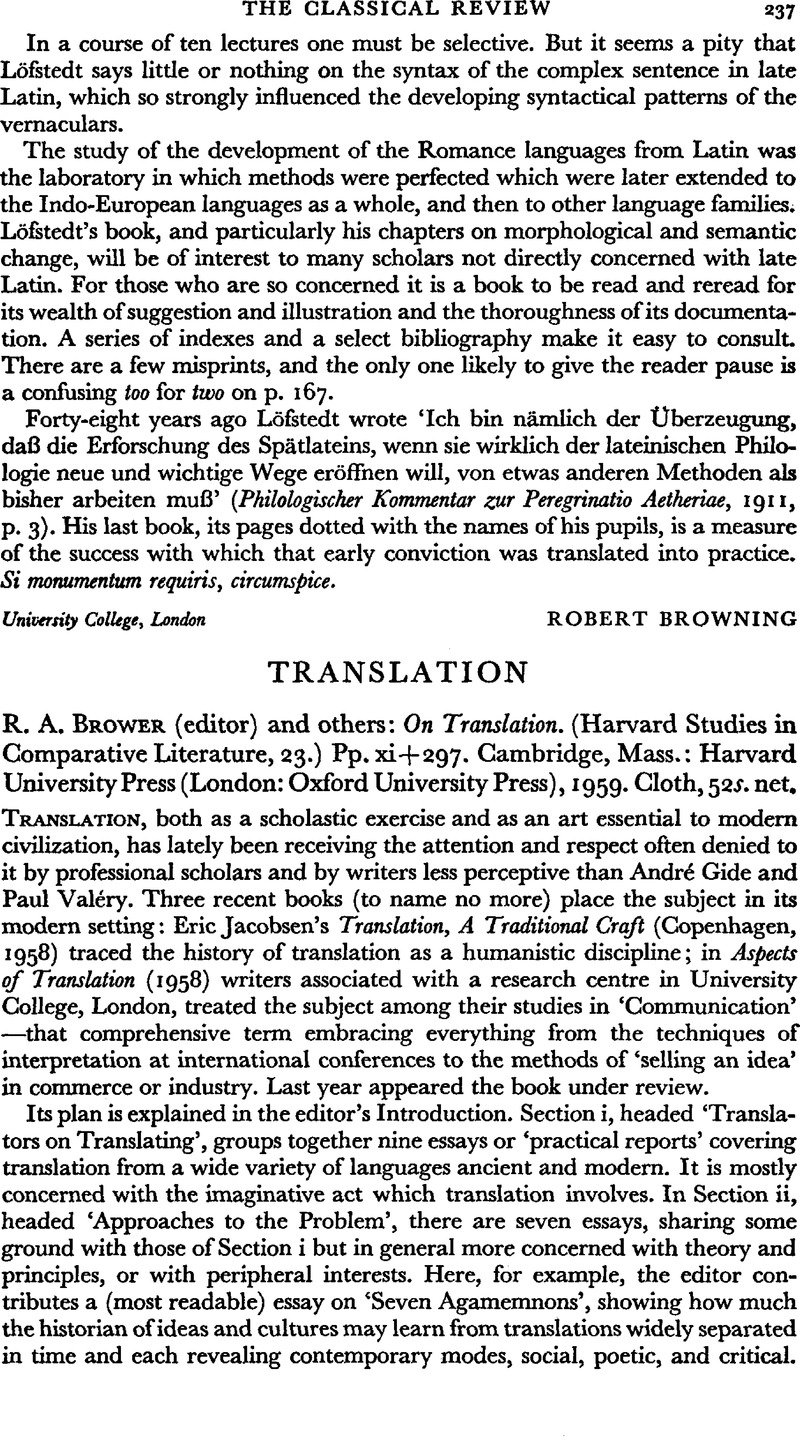No CrossRef data available.
Article contents
Translation - R. A. Brower (editor) and others: On Translation. (Harvard Studies in Comparative Literature, 23.) Pp. xi+297. Cambridge, Mass.: Harvard University Press (London: Oxford University Press), 1959. Cloth, 52s. net.
Published online by Cambridge University Press: 13 February 2009
Abstract

- Type
- Reviews
- Information
- Copyright
- Copyright © The Classical Association 1960
References
page 238 note 1 See Chambers' Edinburgh Journal of 30 March 1850 for a discussion of its mechanism and of the ‘Artificial (Latin) Versifying’ invented by John Peters, 29 Sept. 1677, and recorded in Lowe's, SolomonArithmetic, London, 1749Google Scholar. An illustration of the machine and some details of its performance are given in the Illustrated London News of 21 July 1945. It produced hexameters, about one a minute, playing the National Anthem on a cylinder during their composition and ‘Fly not yet’ while the line was being broken up.
page 238 note 2 The principal translations on which these reports are based are: (a) by F: Alcestis (1936), Anth. Pal., selections (1938, reissued 1957), Antigone (1940), Oedipus Tyrannus (with R. Fitzgerald, 1951), Lysistrata (1955), Frogs (1957), Birds (1958); (b) by L: Pindar (1947), Iliad (1951), Oresteia (1954); Greek Lyrics, including some elegiac poems (1955), Hesiod (1959); (c) by H: Aeneid (1951), Ovid, Metamorphoses (1957).
page 238 note 3 Cf. Highet, G., People, Places and Books (New York, Oxford University Press, 1953), p. 223.Google Scholar
page 239 note 1 Some of these ‘approximations’ I find far from ‘close’, e.g. ‘How long will you lie idle, and when will you find some courage,/ you young men? Have you no shame of what someother cities will say?’ (an elegiac couplet from Callinus); and ‘In the beginning God made various kinds of women / with various minds. He made one from the hairy sow' (iambics from Semonides).
page 239 note 2 He admires L's Iliad, but it does someother times ‘bother his ear’ because ‘the strange seems to override the familiar’.
page 240 note 1 Poetry in Prose (Warton Lecture on English Poetry, British Academy, 1935), especially p. 37.
page 240 note 2 The Testament of Beauty first appeared in 1929. Shortly afterwards Michael Balkwill won the Newdigate Prize with a poem in the same metre, which he tried, at my request, for rendering Iliad xii. 277–89 and other pieces to be found in the Oxford Book of Greek Verse in Translation, q.v., p. lxxxix.


